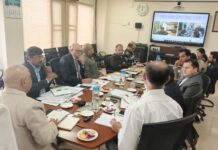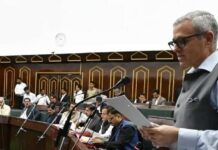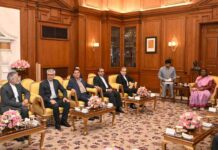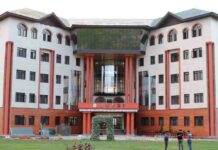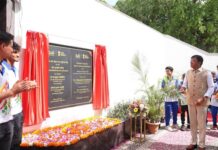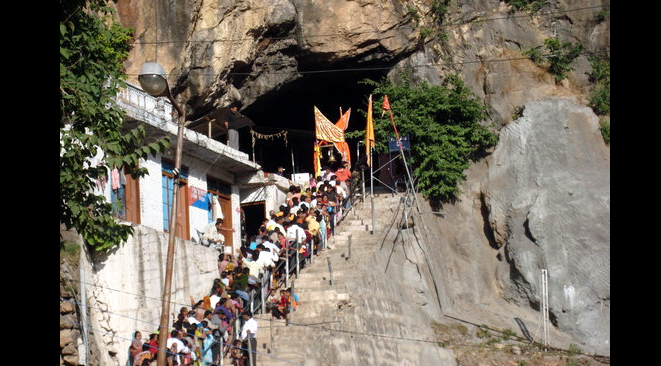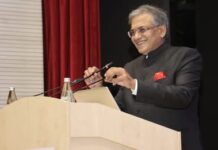JAMMU, Feb 10: In a significant order, Central Information Commission (CIC) has declared Shri Shiv Khori Shrine Board as Public Authority under the Right to Information Act, 2005 and directed the Competent Authority in the Board to appoint Public Information Officer (PIO) and First Appellant Authority (FAA).
The order has been passed in the Second Appeal filed before the Commission because of denial of information by the Shrine Board to the appellant since 2019.
The appellant filed 8 RTI applications dated 01.01.2019 pertaining to Shri Shiv Khori Shrine Board, Reasi. The Executive Officer of the Shrine Board vide letter dated 09.03.2019 intimated the appellant that no Public Information Officer (PIO) and Assistant Public Information Officer (APIO) have been appointed in Shri Shiv Khori Shrine Board and the matter was discussed in the 10th Board Meeting of Shri Shiv Khori Shrine Board, which decided that since Shri Shiv Khori Shrine Board is getting no financial support from Government so there was no need to appoint PIO/APIO.
Moreover, the Board considers it to be out of the purview of the RTI Act, the Executive Officer had conveyed to the informatiSet featured imageon seeker.
Though the appellant knocked the doors of the then State Information Commission yet he remained deprived of the information and accordingly he approached the Central Information Commission with Second Appeal.
Pointing towards Section 2 (h) of the RTI Act, 2005, the Chief Information Commissioner Y K Sinha said that.
“Public Authority” means any authority or body or institution of self Government established or constituted by or under the Constitution; by any other law made by Parliament; by any other law made by State Legislature; by notification issued or order made by the appropriate Government, and includes any— body owned, controlled or substantially financed; Non-Government Organisation substantially financed, directly or indirectly by funds provided by the appropriate Government.
Pointing towards the findings of the Supreme Court and the High Court of Delhi, the CIC said, “it is clear that the definition of Public Authority under Section 2 (h) of the RTI Act, 2005 is divided into two parts and in the present instance, the Commission is required to ascertain whether the Shrine Board qualifies as a Public Authority as per the first part of Section 2 (h) (b)/(c) of the RTI Act, 2005”.
Based on these findings it is also clear that whether the body is financed/ substantially financed by the appropriate Government also becomes immaterial if the Commission is examining if the body is a Public Authority as per Section 2 (h) (a )to (d) (first part), the CIC said, adding hence, the contention of the respondent that it is not financed by the Government does not hold good.
“Clause (b)/(c) of Section 2 (h) is applicable to the facts of the present case. As per the records available, it is clear that the Shrine Board was “established/ constituted” by way of the Jammu and Kashmir Shri Shiv Khori Shrine Act, 2008 Act enacted on 11.02.2008. As per Section 3 (a) of the Act, the board means the Shiv Khori Shrine Board “constituted” under the Act, the CIC said.
“The terms of appointment of the board constituents, conditions of disqualification from membership of the board, resignation, removal of members, duties of the board, liability of the members are all defined under the Act”, the CIC said, adding Section 19 of the Act states that the members, officers and employees of the Board shall, while acting or purporting to act in pursuance of the provisions of this Act or any bye-laws made there under, be deemed to be public servants within the meaning of Section 21 of the Indian Penal Code.
“Thus, there is no scope of ambiguity in considering the Shrine Board as a “body” as envisaged within the definition of “Public Authority” under Section 2 (h) of the RTI Act, 2005 and the Government of UT of J&K being the “Appropriate Government” as per the definition under Section 2 (a) of the Act”, the CIC further said.




